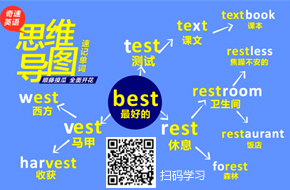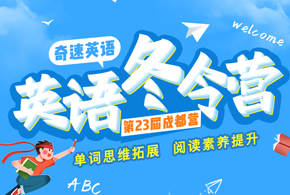Unit 6 Outdoor 重点汇总
一、重点词组
二、重要句型
1、Hurry up, Eddie. 快点,埃迪!
hurry up意为“快点”。
如:Hurry up, or you will be late.
快些,不然要迟到了。
(1)hurry to +地点 意为“赶往某地”,
如:Betty hurried to the garden.
贝蒂急忙奔向花园。
(2)(be)in a hurry意为“匆忙地;仓促地”.
(3)hurry to do sth. 急忙做某事
2、Hobo, carry it for me.
霍波,帮我拿包吧。
[辩异]bring, carry 和take
bring表示“拿来”(从远到近)
take表示“拿走”(从近到远)
carry表示“搬、运”
____________ me my food here, please.
You can read the book here but you can’t ______ it home.
Trains _______ more things than trucks.
3、You complain too much. 你抱怨太多了。
complain to sb. about sth.向某人抱怨某事
He complained______the teachers.
He complained_______ his child’s bad grades.
too much “太多”修饰不可数名词或修饰动词表程度
too many “太多” 修饰名词复数
much too “太” 修饰形容词或副词
You shouldn’t eat _______ meat.
I’m afraid you eat _________.
Jim put _________ books into his schoolbag, so it is ______ heavy now.
4、It took a watch out of its pocket and looked at the time.
它从口袋里拿出一块表看了看时间。
take A out of B意为“从B物品中拿出A”。
make A out of B意为“用B物品制作A物品”
5、Alice fell for a long time, and then she hit the ground.
爱丽丝掉了很长一段时间,接着她撞到了地面。
fall 作动词,意为“倒下;跌下;落下”,其过去式为fell。如:
Jack fell into the water and got wet.
杰克掉进水里,全身都湿透了。
fall down 倒下;落下
fall asleep 入睡
fall off……从……掉下
fall behind 落后;落在……的后面
(2)hit作动词,意为“打;敲;撞;击中”。过去式hit.
hit sb in the face/on the head
意为“打某人的脸/头”,如:
Simon hit Jack in the face.
西蒙打了杰克的脸。
6、She found herself alone in a long, low hall.
她发现她自己单独在一个长的低矮的大厅里。
(1)alone用作形容词,意为“单独的”,只作表语。如:
Robinson was alone on the island.
罗宾逊一人在岛上。
(2)alone用作副词,意为“单独地;独自”。
=by oneself或on one’s own如:
The old woman lived alone in the mountain village.
这位老妇单独一人住在那个山村。
lonely 只作adj.孤独的,寂寞的,强调内心感受。
eg. The old woman doesn’t feel _______although she lives__________.
7、Alice tried to go through the door, but she was too big.
try to do sth. 努力做某事
try doing sth.尝试做某事
try on 试穿
have a try 试一下
try/do one’s best to do sth.
尽某人最大的努力去做某事
8、He practised playing volleyball with his friends.
他和他的朋友练习打排球。
practise sth./doing sth.
eg. practise basketball = practise playing basketball
We should practise ___________English every day.
我们应该每天训练说英语。
9、We put up a tent near a lake.
我在湖旁搭起了帐蓬。(put过去式put)
(1)put 动词,意为“放;置”。
如:Please put your shoes under the bed. 请把鞋放在床下。
(2)put up 意为“举起;建起;住宿”如:
Those who want to see the film put up your hands.
想看电影的人,请举手。
10、Weifang, a city in Shandong Province, has become famous for making kites from then on.
潍坊-山东省的一个城市,从那时起因制造风筝变得出名了。
from then on 意为“从那时起”,与一般过去时连用
from now on 意为“从现在起” 与一般将来时连用
11、Alice had to go back to the table, but she was too small to reach the key.
爱丽丝不得不回到那张桌子,但她太小够不到那把钥匙。
too … to …意为“太……而不能……”。短语中too是副词,
后接形容词或副词;to是动词不定式的符号,后接动词原形。如:
The story is too difficult for me to understand.
这个故事太难,我无法理解。
He walked too slowly to catch up with me.
他走路太慢而能不能跟上我。
三、语法复习
一般过去时(II)
I一般过去时的句型见下表:
II与一般过去时经常搭配的时间状语有:
yesterday 或由其构成的短语。
如:yesterday morning, the day before yesterday等。
2、由last开头构成的短语。如:last year, last month等。
3、由ago结尾构成的短语。如:a moment ago, an hour ago等。
4、由“介词+过去时间”构成的短语。如:in 2002, at the time等。
5、this week, this year, today等也可与一般过去时连用,但它们必须指过去,决不包括“现在”在内。
6、其他词。如:then, just now, once等。
此外,也可以根据上下文或语境所暗示的时间来判断出一般过去时。
如:I saw him in the street.










